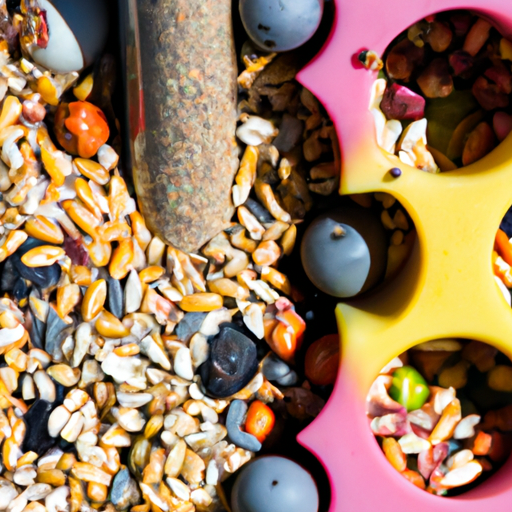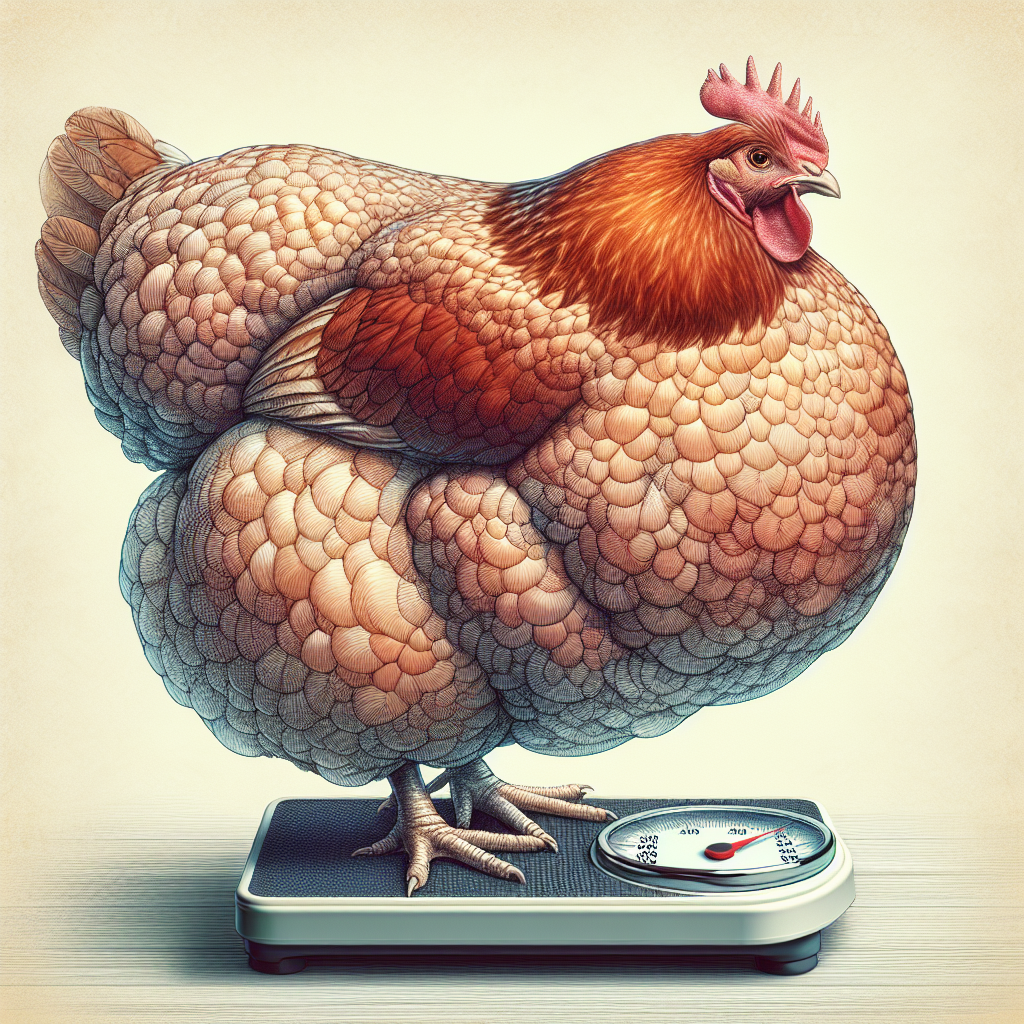In order to ensure the health and well-being of your flock, it is crucial to regularly assess and modify their dietary needs. By consistently adjusting and evaluating their nutritional requirements, you can ensure that they are receiving the necessary nutrients for optimal growth and development. Understanding the importance of this process will enable you to provide your flock with a balanced and nutritious diet, ultimately leading to healthier and happier birds. So, let’s explore how often you should be adjusting and evaluating the dietary needs of your flock to keep them in top shape.
Importance of Adjusting and Evaluating Dietary Needs
Adjusting and evaluating the dietary needs of your flock is of paramount importance for several reasons. Firstly, it ensures optimal health and growth for your birds. By providing them with a balanced diet tailored to their specific needs, you are promoting their overall well-being.
Another reason to adjust and evaluate dietary needs is to prevent nutritional deficiencies and imbalances. Birds, just like humans, require a variety of essential nutrients to function properly. By regularly monitoring and fine-tuning their diet, you can ensure they are receiving all the necessary vitamins, minerals, proteins, and carbohydrates they need to thrive.
Furthermore, adjusting and evaluating dietary needs is vital for maximizing egg production. For those who keep hens for egg-laying purposes, ensuring their diets are optimized for this purpose is crucial. By providing the right balance of nutrients, you can help your hens lay more eggs and improve the quality of the eggs they produce.
Additionally, adjusting and evaluating dietary needs can enhance the immune system function of your flock. A well-balanced diet can strengthen their immune systems, making them more resistant to diseases and infections. This, in turn, can lead to fewer instances of illness and a higher overall survival rate among your birds.
Finally, by regularly adjusting and evaluating dietary needs, you are promoting improved overall flock wellbeing. A healthy and well-nourished flock is happier, more active, and less prone to aggression or behavioral issues. By prioritizing their dietary needs, you are nurturing a harmonious and contented flock.
Factors Influencing Dietary Needs
Several factors influence the dietary needs of your flock. Understanding these factors will help you make informed decisions when it comes to providing them with the right nutrition.
Age and life stage play a crucial role in determining dietary needs. Chicks and adolescent birds, for example, require a higher protein content in their diet to support their rapid growth. On the other hand, adult maintenance requires a more balanced diet to sustain their general well-being. Meanwhile, breeding and egg-laying hens need additional calcium and other nutrients to support their reproductive functions.
Breed and size also affect the dietary needs of your birds. Different breeds have varying requirements, and larger birds may require more food to maintain their body weight and energy levels.
Health conditions must also be taken into account when evaluating dietary needs. Birds with digestive disorders or metabolic issues may require specific diet modifications to accommodate their condition. Additionally, addressing issues like feather pecking or cannibalism may necessitate dietary adjustments.
Environmental factors also play a role in determining dietary needs. Temperature and heat stress, for example, can impact the energy expenditure of birds, requiring adjustments in their diet. Availability of foraging opportunities and fresh greens also affect the type and quantity of supplementary feed required.
Finally, activity level should be considered. Birds with higher activity levels, such as those allowed to free-range, may require additional nutrients to sustain their energy levels.
Baseline Dietary Evaluation and Planning
To ensure your birds receive optimal nutrition, it is essential to start with a baseline dietary evaluation. Consulting poultry nutrition experts can provide valuable insights and guidance on formulating the right diet for your flock. They can help analyze nutrient requirements based on avian research and recommend appropriate feed types and formulations.
Local feed availability and cost should also be taken into account when planning the diet for your flock. Ensuring that the required feed is readily accessible and affordable will make it easier to consistently meet their dietary needs.
Monitoring Body Condition and Weight
Regularly monitoring your flock’s body condition and weight is crucial in determining if their diet is appropriate. Visual assessments can give you a general idea of their overall health and body condition. Using body condition scoring systems, such as the Hen Welfare Trust’s method, can provide more objective assessments.
Tracking weight changes over time can help identify changes in their dietary needs. If birds are consistently losing weight or gaining excess weight, adjustments to their diet may be needed. By adjusting feed quantities accordingly, you can ensure they maintain a healthy weight.
Recognizing Signs of Nutritional Imbalances
Understanding the signs of nutritional imbalances is key to addressing any deficiencies or excesses in your flock’s diet. Feather quality issues, such as feather loss or poor feather growth, can be indicative of nutrient deficiencies. Decreased egg production, poor growth or muscle development, and digestive problems are also signs that their diet may be lacking in certain nutrients.
Additionally, a lack of vitality and energy can suggest a diet that is not adequately supporting your flock’s needs. Recognizing these signs and promptly adjusting their diet can help prevent further health issues and improve overall flock well-being.
Adjusting Diets for Different Life Stages
Different life stages require different dietary adjustments to meet the changing needs of your flock. Chicks and adolescent birds, for example, require higher protein content to support their growth. As they transition into adulthood, their diet should be adjusted to a more balanced maintenance diet.
Breeding and egg-laying hens have specific requirements due to the demanding nature of their reproductive functions. Calcium-rich feeds are crucial to support eggshell production. Molting periods also require special attention, as birds need additional protein and nutrients to grow new feathers.
Senior birds may have decreased appetite or difficulty digesting certain nutrients. Adjustments to their diet may be necessary to accommodate their changing needs and maintain their overall health and well-being.
Addressing Breed-Specific Needs
Different breeds have different nutritional requirements. Meat breeds, for example, require diets with higher protein content to support their muscle development. Layer breeds, on the other hand, need diets that are rich in calcium to support egg production.
The size of the breed also plays a role in their dietary needs. Larger fowl may require more food to maintain their weight and energy levels compared to bantam breeds. Understanding and addressing these breed-specific needs will help ensure your flock receives the nutrition it requires.
Special Considerations for Health Conditions
Birds with health conditions may require specific diet modifications. Digestive disorders, such as sour crop or impacted crop, may necessitate changes in feed consistency or the inclusion of probiotics in their diet. Metabolic issues, such as fatty liver syndrome, require careful monitoring of nutrient intake and adjustments to prevent further complications.
Feather pecking or cannibalism may require changes in the diet, including the inclusion of additional fiber or enrichment materials to deter such behavior. Calcium deficiencies or excesses can cause health issues like soft-shelled eggs or kidney damage and need to be addressed through dietary adjustments.
Consulting with a veterinarian or poultry nutrition specialist can provide valuable guidance on addressing specific health conditions through diet.
Environmental Factors and Seasonal Adjustments
Environmental factors and seasonal changes can influence the dietary needs of your flock. Temperature and heat stress, for example, can increase their energy requirements, necessitating adjustments in their diet to meet these increased demands. Providing shade, additional water sources, and adjusting their diet to include more energy-dense feeds can help them cope with heat stress.
Humidity and ventilation also play a role in dietary needs. High humidity levels can affect feed quality and spoilage, requiring adjustments to prevent food-related issues.
Foraging opportunities can vary based on the availability of fresh greens and insects. Adjusting their diet to include supplementary feeds during periods when foraging is limited can help ensure they receive the necessary nutrients.
Regular Evaluation and Assessment
Regular evaluation and assessment of your flock’s dietary needs are key to maintaining their optimal health. Periodic consultation with poultry nutrition specialists can provide valuable insights and guidance based on the specific needs of your flock. They can help track performance, identify areas for improvement, and suggest dietary adjustments if necessary.
Keeping records and tracking your flock’s performance over time can help identify patterns, deviations, or improvements. This information can inform future dietary adjustments and provide a valuable reference point for evaluating their health and well-being.
Observing flock behavior and overall health is also essential. Changes in behavior, energy levels, or appearance can provide valuable clues about their dietary needs. Adjusting their diet based on these observations can help address potential issues before they become more severe.
Finally, farm-specific dietary experiments and adjustments can lead to a better understanding of what works best for your flock. Every flock is unique, and through trial and error, you can fine-tune their diet to ensure optimal health and well-being.
In conclusion, adjusting and evaluating the dietary needs of your flock is crucial for their optimal health, growth, and overall well-being. By considering factors such as age, breed, health conditions, and environmental factors, you can tailor their diet to meet their specific needs. Regular evaluation, monitoring, and assessment will help you identify any nutritional imbalances or deficiencies and make necessary adjustments. By prioritizing their dietary needs, you are ensuring a happy, healthy, and thriving flock.




